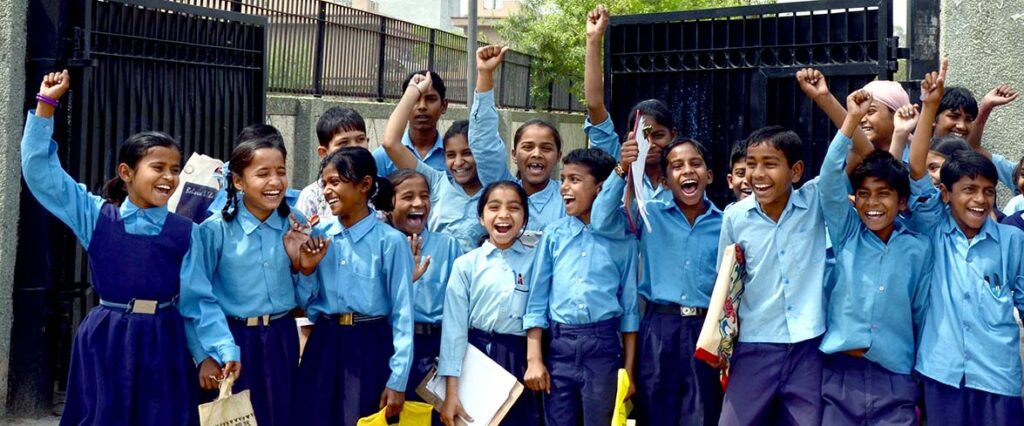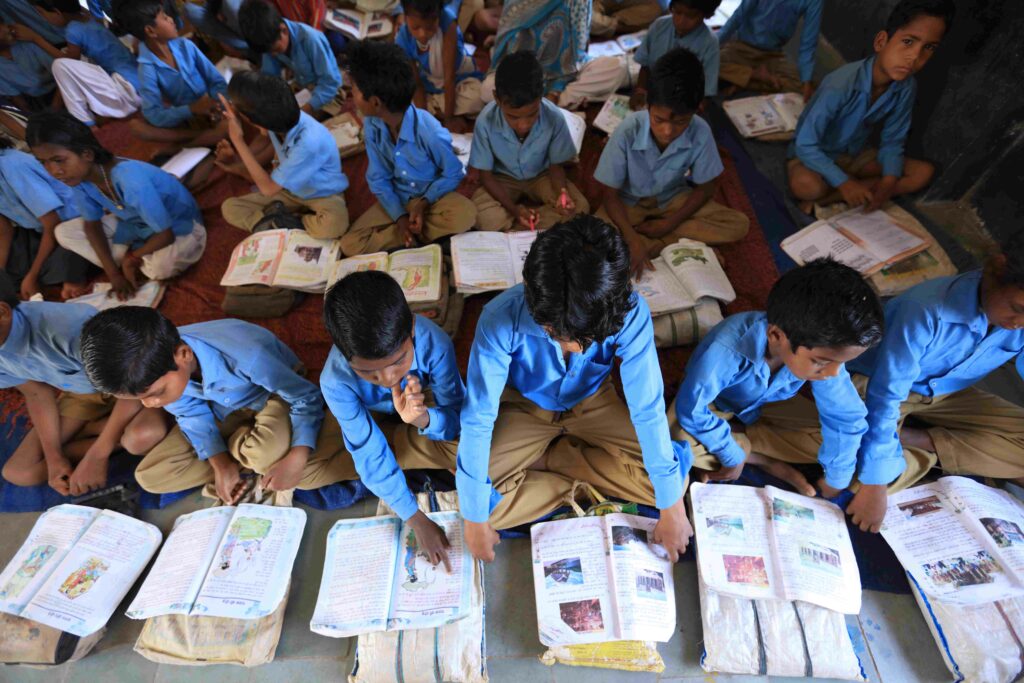
National Education Day: The Need for Comprehensive Education in Child Welfare
What is National Education Day?National Education Day is an annual observance in India, commemorating the birth anniversary of Maulana Abul K....
Read MoreEducation is the foundation for equality, progress, and opportunity. Every year, International Literacy Day reminds the world of the power of learning and the urgent need to ensure that every child—regardless of background—has access to quality education. Literacy not only transforms individual lives but also strengthens communities and nations.

International Literacy Day is a global observance that emphasizes the importance of literacy as a human right. It serves as a call to action for governments, organizations, and communities to work together toward a more educated and inclusive world.
Established by UNESCO, the day highlights how literacy contributes to sustainable development and peace. Literacy equips children with skills to think critically, access better opportunities, and contribute meaningfully to society. It supports all 17 Sustainable Development Goals (SDGs), particularly SDG 4: Quality Education.
When is International Literacy Day celebrated? It is observed every year on September 8, as proclaimed by UNESCO in 1966. Since then, it has been celebrated globally through workshops, school events, and literacy awareness campaigns.
Each year, UNESCO announces a new theme such as “Promoting Multilingual Education” or “Literacy for a Human-Centered Recovery” to highlight evolving educational priorities. In India, schools, NGOs, and government bodies organize reading drives, competitions, and awareness programs to promote the message of literacy for all.
The history of International Literacy Day dates back to 1965, when the World Conference of Ministers of Education held in Tehran recognized literacy as a crucial part of human rights. Following the conference, UNESCO declared September 8 as the day to promote global literacy efforts.
The United Nations and UNESCO have played key roles in spreading literacy movements globally. UNESCO launched initiatives such as the Global Alliance for Literacy (GAL) and the Education for All Movement, focusing on children, youth, and adults in low-literacy countries. These efforts continue to inspire nations, including India, to strengthen their education systems and make literacy accessible to everyone.
Also Read: Free Education
The international literacy day significance lies in its message that literacy empowers individuals and communities. It enables informed decision-making, civic participation, and employment opportunities. A literate society is healthier, more resilient, and more productive.
Benefits of Literacy for Communities:
For children, literacy is more than just learning to read and write, it’s the foundation for lifelong learning and emotional growth. Literate children are more confident, aware, and capable of making positive contributions to society. Ensuring literacy means ensuring every child’s right to a brighter, safer future.
Despite decades of progress, millions of children around the world still lack access to basic education.
Challenges and Impact on Children
Overcoming these barriers requires collaboration among governments, NGOs, and communities, ensuring that every child has the opportunity to learn, dream, and succeed.
Also Read: Inclusive Education
International Literacy Day supports the global goal of Education for All by promoting inclusive, equitable, and quality learning. The day encourages nations to design and implement literacy programs that reach marginalized groups, especially rural children, girls, and children with disabilities.
In India, initiatives like the National Literacy Mission and Padhe Bharat Badhe Bharat reinforce this vision by enhancing reading and writing skills at the grassroots level.
The observance of International Literacy Day inspires actions that directly benefit children’s education.
It helps by:
When children are empowered with literacy, they gain the tools to build better futures for themselves and their communities.
CRY (Child Rights and You) works to ensure every child’s right to education in India. Through grassroots interventions, partnerships, and awareness programs, CRY focuses on enrolling out-of-school children, preventing dropouts, and improving learning environments.
Key CRY Literacy Initiatives:
These efforts align with the vision of International Literacy Day to empower every child through education and knowledge.
Also Read: Right to Education
Supporting literacy is a shared responsibility. Individuals, corporates, and communities can all play their part in shaping a literate future.
Ways to Contribute:
Every small step helps nurture a generation of confident, educated, and empowered children, one word at a time.
Support children education through CRY India and help them stay active, develop essential life skills, and realize their full potential.
Achieving literacy for all remains a challenge due to poverty, limited school access, and social barriers. Many children worldwide still lack learning opportunities. Strengthening education systems and promoting inclusive, equitable access to schooling are essential to overcoming these global challenges.
International Literacy Day emphasizes how education transforms lives. It highlights literacy as a key to empowerment, equality, and sustainable growth, reminding the world that every child deserves the opportunity to learn, grow, and contribute to a better future.
Individuals can support International Literacy Day by promoting reading, volunteering, or contributing to child education programs. Supporting efforts that ensure continuous learning opportunities for underserved children helps strengthen literacy and create lasting change in communities.
At CRY, education initiatives focus on ensuring every child attends school and continues learning. Through programs that enhance school infrastructure, support teachers, and promote digital learning, CRY has helped thousands of underserved children access quality education and build brighter futures.